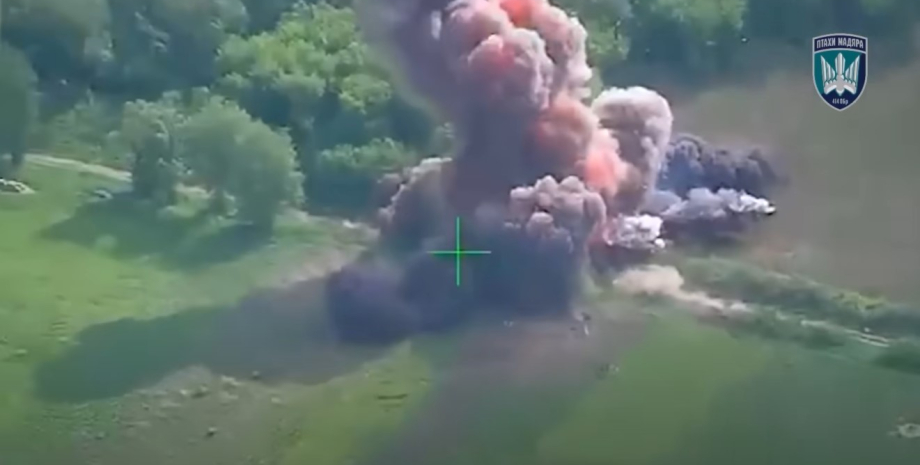
 By Eliza Popova
By Eliza Popova
The staff from another Ukrainian drone for objective control shows how the Ukrainian FPV-Dron accurately gets into the block of guides, which leads to the instant detonation of the entire ammunition. The explosion of such power probably destroyed Russian artillerymen if they were near the starting unit.
The staff from other Ukrainian drone for objective control shows how the Ukrainian FPV-Dron accurately gets into the block of guides, which leads to the instant detonation of the entire ammunition. The explosion of such power probably destroyed Russian artillerymen if they were near the starting unit. Later, as stated in the Telegram-channel "War in Ukraine.
Losses of Technology", by geolocation from the video managed to determine the exact place of impact-the settlement of Novoivanivka in Kursk region. This is not the first time that Ukrainian drones strike in Russian territory, destroying the enemy's technique on the front line. Thus, the "Magyara birds" impressed the flamethrowing system of the Tos-2 "Tosochka"-an extremely rare machine, the loss of which has become the second time of a full-scale invasion.
It should be noted that such blows cause serious damage to the arsenal of the invaders and undermine their offensive opportunities. In response to increasing losses, Russia has begun to equip its equipment with antitrone protection. However, the effectiveness of such revisions is in doubt.










All rights reserved IN-Ukraine.info - 2022